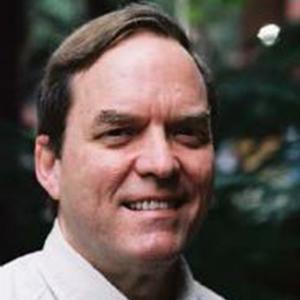“As my time at UF comes to an end, Dr. Perrone stands as one of my most memorable and beloved professors. I am thankful for the times he has listened to my concerns and for the advice he has given me throughout the years.”
– Mirelis L. Martínez, MA Candidate, Center for Latin American Studies; President, Student Association of Latin American Studies

After 32 years at UF, Professor Charles A. Perrone is retiring. We conducted this short interview with him to reflect on his time here.
How did you get involved with Portuguese and Brazilian culture?
Where I grew up (Santa Clara Valley, California) there was a Portuguese community—church, bakeries, radio, etc. – and eventually a Brazilian presence. Something must have rubbed off. For my master’s degree in Hispanic studies at UC Irvine, I chose Portuguese as secondary specialization, largely because of the allure of Brazilian music. I got a Fulbright scholarship to go to Brazil in 1978. The rest is history.
How would you like your students to remember you?
I hope they all believe that I was there to help them expand their horizons and achieve their goals, always.
What do you think is your major contribution to UF students’ education?
Quantitatively, my largest constituency over three-decades-plus were [those in] the intermediate groups, and there I was so happy to work with crônicas brasileiras, the urban chronicles of personal observation that comprise the most popular genre of Brazilian letters and the most useful genre to teach language and culture.
What will you miss the most about Gainesville and UF?
I will miss the overall international presence that includes our Department of Spanish and Portuguese Studies, Iberia and Iberoamerica, the Center for Latin American Studies with its Brazilian and Spanish American contingents, the sister Centers for African and European Studies, the Harn Museum, the Center for World Arts, etc.
What are your plans after retirement?
First of all, to sleep more. I will continue in my editorial roles at the Library of Congress (Hispanic Division, Handbook of Latin American Studies) and journals such as Chásqui and Romance Studies. I will be able to accept more invitations to translate essays, poetry, and prose from Portuguese to English. I will be curating collections from my holdings such as Contemporary Brazilian Poetry for Stanford University and MPB: Música popular brasileira for the University of Illinois. I will also likely accept a standing offer to be an editor at Poetry Circle. Oh! and I will be an organic gardener in California. My new digs have three raised beds and all sorts of planted fruits and vegetables.
You are a published poet and specialist in poetry. Is there a poem you would like to be added to the interview?
Well, I am what they call a poeta bissexto in Brazil, a leap-year poet, one who produces only occasionally, not every year. But some poems do convey my abiding curiosity and faith in just plain fun. Here is one:
Three Ways Home
All the steps of the staircase are distinct,
for they are sculpted from aged oak
and polished with select citrus oils.
All the lemons on this elderly tree are different,
for they were born of cloak blossoms
and grew up in rich conceptive soils.
All the children up and down the street are diverse,
for they too embraced the fruits of toil
and the stroke of genius that is to play.
How would you describe the highlights of your musical endeavors here?
I did publish a lot about Brazilian music, and I have included song and dance music in many classes since 1985. I also kept up with performing over the years, given the opportunities in the local Music Department. And since the establishment of the Brazilian Music Ensemble at UF (c. 1990) I have played the cavaquinho in groups of samba and choro (instrumental) with fellow faculty and students of varied provenance. It’s been great.
Thank you, Dr. Perrone, for all you have given to UF. Sentiremos a sua falta, colega!